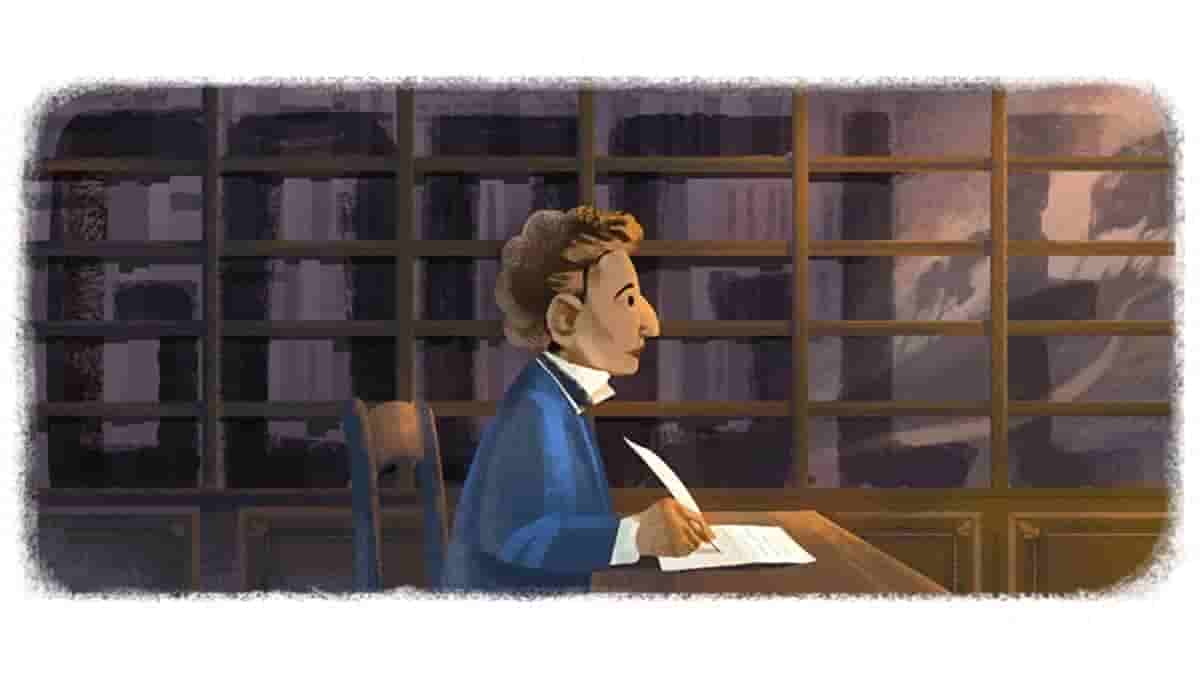Google Doodle Celebrates The 225th Birthday Of Giacomo Leopardi

Giacomo Leopardi is the person who is featured on today’s Google Doodle. Today is the birthday of Giacomo Leopardi, an Italian poet, philosopher and scholar. He is regarded as one of the greatest Italian poets of the nineteenth century.
He was born on June 29, 1798, in the small provincial town of Recanati. From a young age, he was an avid reader who loved passing time in his father’s library. He became fluent in Latin, ancient Greek, and Hebrew during this period.
His reading laid the stones for him to become a philologist. A philologist is a scholar who studies the history and development of languages. He went on to translate several Latin and Greek classics too.
"A dictionary can embrace only a small part of the vast tapestry of a language." Or so says the subject of today's #GoogleDoodle: Giacomo Leopardi, one Italy's most important 19th century literary figures.
Learn more about his life —> https://t.co/V9z74LQHoI pic.twitter.com/YuZGduNHyf
— Google Doodles (@GoogleDoodles) June 29, 2023
Leopardi fell in love with the ideas of the Enlightenment. The Enlightenment was a philosophical movement that promoted reason and logic over superstition. He was passionate about his beliefs and became one of the most radical thinkers of his period.
At 14, he wrote Pompeo in Egitto or Pompey in Egypt, a manifesto criticizing one of the most powerful figures in Rome. In the following years, he wrote philosophical works and notable poems such as L’appressamento della morte (The Approach of Death), Inno a Nettuno (Hymn to Neptune), and Le rimembranze (Memories).
His writings often explored patriotism, unrequited love, and profound reflections on human existence, which made him a precursor to Existentialism. Through his literary evolution, he created a remarkable and renowned poetic work related to the Romantic era.
The strong lyrical quality of his poetry made him a central figure in the European and international literary and cultural landscape. He died during the cholera epidemic of 1837. The immediate cause was, probably pulmonary edema or heart failure due to his fragile physical condition.


